In the following article I show a scalping method based on the moving average channel.
Setup Strategy
Time Period: 1 minute or higher
Currency pairs: Major pairs
Technical Analysis Tools:
- 34-period Exponential Moving Average (EMA) applied to the Close
- 34-period Exponential Moving Average (EMA) applied to the High
- 34-period Exponential Moving Average (EMA) applied to the Low
When the price is above the EMAs (Exponential Moving Averages), our focus is solely on buying as the price retraces to the EMAs.
(Conversely, when the price is below the EMAs, we concentrate on selling as the price retraces to the EMAs).
Our aim when the price retraces to the EMAs is for it to hold and then demonstrate its intention to continue.
We seek this continuation signal in the form of a robust, momentum-driven price bar.
(illustrated in examples 1-3)
In the chart, you'll notice a surge in selling activity (indicated by a long, bearish candle) after this retracement – this candle signals a selling opportunity!
Given our scalping approach, we monitor the market closely. You'll observe a swift decline in the market with the formation of a long, red candle.
There's no necessity to wait for the candle to close – if you witness a decline, initiate the sell! (However, as a beginner, waiting for closure may enhance confidence).
(illustrated in example 4)
This trade would have yielded at least a 1:1 profit ratio – possibly 2:1 if you opted to hold longer.
So, that essentially sums up this trading system:
1) Wait for a retracement
2) Enter when market momentum strengthens
3) Exit when momentum decelerates (or if you're not in profit within a minute or two)
If the market has already made significant moves during the day, I refrain from entering expecting further movement in the same direction.
(illustrated in example 5)
Occasionally, the market may progress slowly in a particular direction when you initiate a trade, while at other times, it might swiftly advance without hesitation.
(illustrated in example 6)
Often, a failed trade in one direction serves as a cue for the market to move in the opposite direction – so stay vigilant!

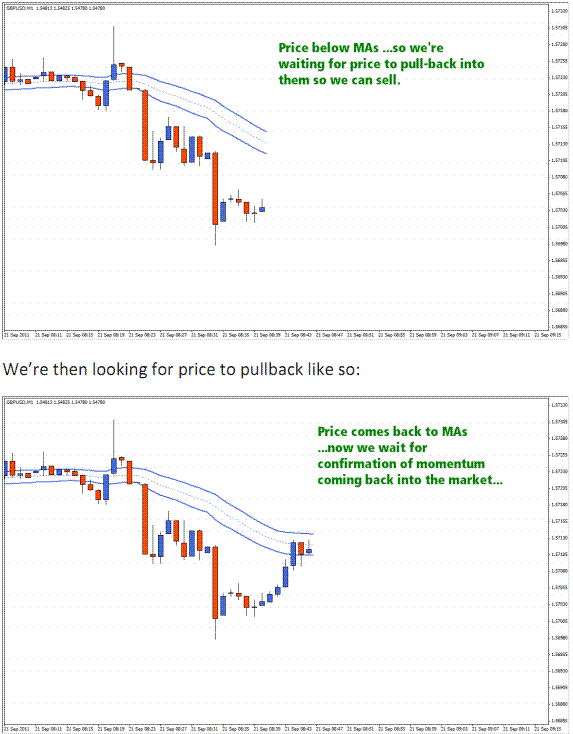
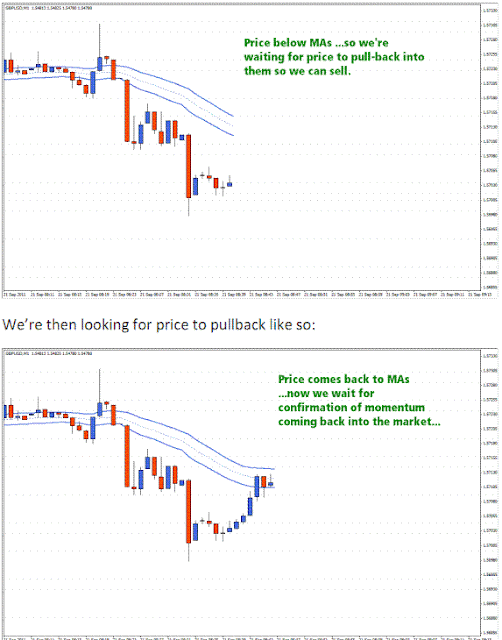
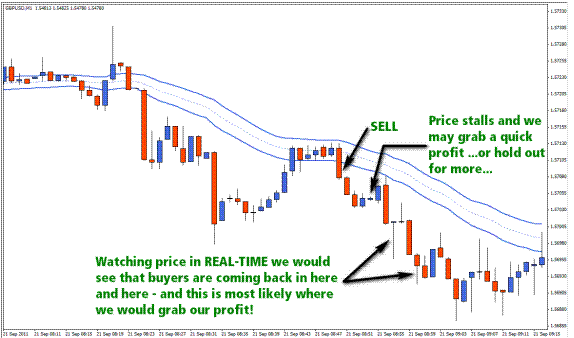
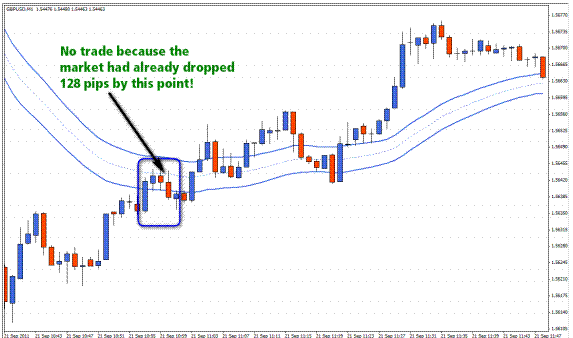
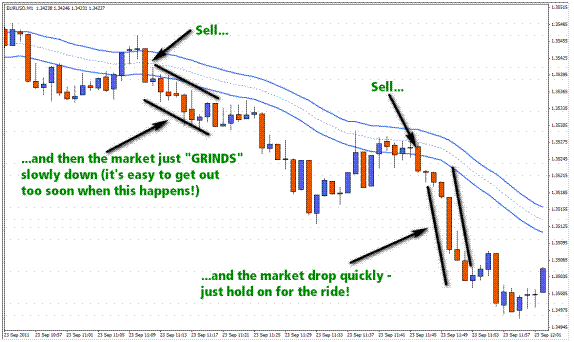
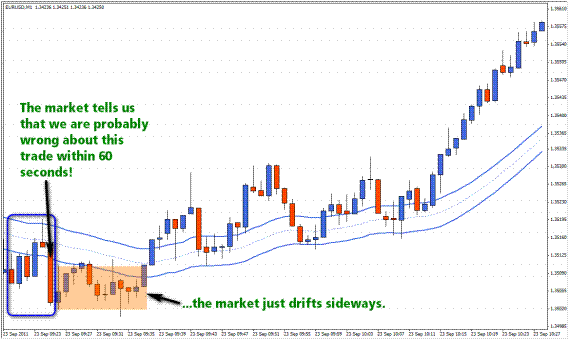

Post a Comment